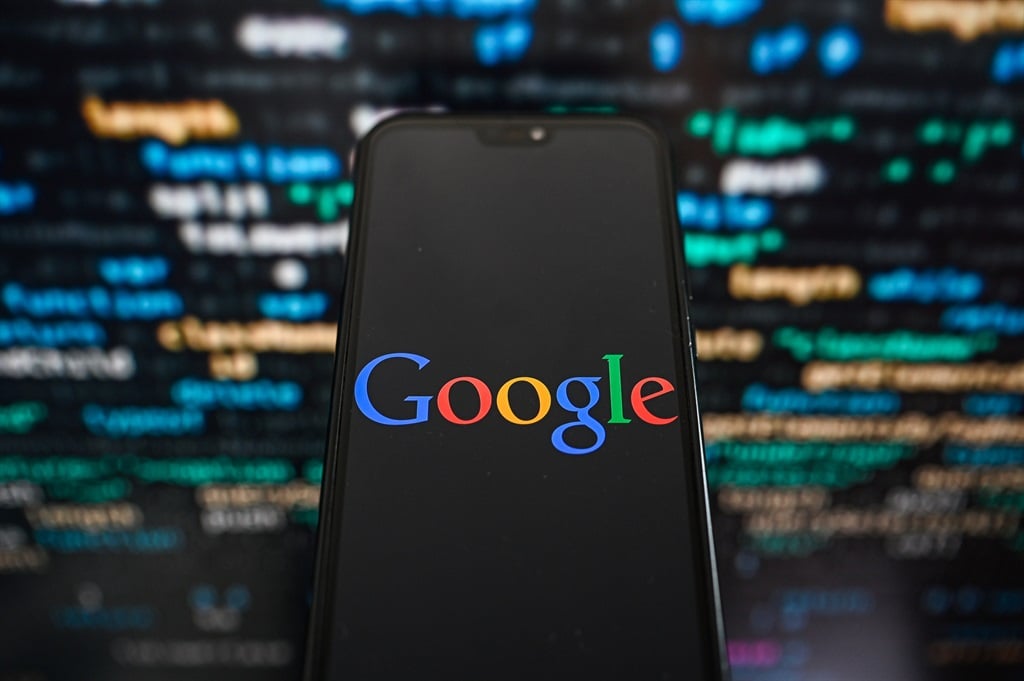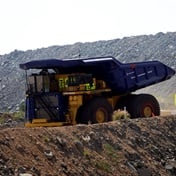
- Media24 CEO Ishmet Davidson says Google's secretive and dominant control of online news distribution is a threat to press freedom.
- He argued that Google was abusing its dominant market position, which has left the fourth estate on its knees.
- In a written submission, Google said that the company was committed to supporting the sustainability of the industry.
- For more financial news, go to the News24 Business front page.
Google, not government, is the biggest threat to press freedom in South Africa, according to Media24 CEO Ishmet Davidson.
Appearing before of the Competition Commission on Tuesday, Davidson argued that the company abused its dominant position in the market to leave South African news publishers with "crumbs".
The commission has been hearing from news publishers as part of its Media and Digital Platforms Market Inquiry, initiated to establish whether there are market features in digital news distribution platforms which "impede, distort or restrict competition", and which undermine the South African news sector.
"I've been in publishing for almost 30 years, and have played an active role in resisting any potential threat by government to interfere in or to curtail press freedom. But as things have turned out, the threat to press freedom in our country is not from government. It's from one of the wealthiest and most dominant companies in the world – Google," Davidson told the commission.
The inquiry will be running over the year with the aim to create a better understanding of the changing dynamics of online news distribution, and to assess whether intervention in the market is necessary owing to anti-competitive behaviour by digital platforms.
Tech giants, including Google and Meta, have already made written submissions to the inquiry, and are expected to make oral submissions later this month. Elon Musk's X platform has refused to participate in the inquiry.
READ | Media vs big tech: Elon Musk's X slammed by SA competition watchdog for snubbing inquiry
It was Google, which is an intermediary between the readers and producers of news through multiple channels, that was the main subject of Davidson's oral submission to the commission.
Media24 owns a host of print and digital publications, including News24, and is part of the Naspers group.
To set the scene, Davidson explained that changing reader behaviour has resulted in a roughly 50% decline in the company’s print business over the last seven years.
Anticipating this, the company invested in digital publications, such as News24, which currently has a monthly readership of over 20 million users and a subscriber base of over 100 000, based on data shown to the commission by Davidson.
However, advertising revenue at News24 has "shrunk considerably" said Davidson, after a slight lift during the Covid-19 pandemic.
Davidson said that the revenue growth from the growing subscriber base over the last three years has not nearly been enough to offset the decline in advertising revenue at the publication.
News24 remains unprofitable, which is an indication of the unsustainable business model of South African news media organisations, Davidson said.
According to Davidson:
Google's role
Davidson said that while Google claims news content is insignificant in generating impressions and revenue in the Google universe, this is not borne out in data available to the company.
News content is accessible through Google when the content is shown to people through the Google search bar, and the Google News and Google Discover platforms, which aggregates news from multiple different publications and allows for clicks through to the content.
Davidson said that while News24 generated 5.2 billion impressions on Google last year, only 5% resulted in a click through to the publication's site, from which the company can generate revenue.
However, that 5% click-through rate accounts for 44% of News24’s referral traffic, without which the publication would be in "even deeper trouble", said Davidson.
In its submission to the commission, Google said that it does not make meaningful revenue from news content through the search tool, and said that Google Search does not compete with publishers on ad spend, data or subscriptions.
"While we appreciate that both publishers and search engines have an ads-funded business model, there is no competitive interaction between Google Search and a news publisher in relation to searches with news intent," said the Google submission.
"We are committed to helping South Africans find trustworthy, diverse, high-quality news content, and to supporting the sustainability of the South African public interest news industry."
Google said that its Google News initiative was not monetised and had provided publications with funding and training to succeed in the digital age.
Davidson said that the relatively small amount of funds made available to publishers through the initiative is "altruism disguising greed", adding that Google was:
Next frontier
Charlene Rolls, the head of artificial intelligence (AI) at Media24, told the commission about the impact that Google’s generative AI tools would soon have on news media publications.
She explained that Google's decision to introduce an AI-generated response at the top of search results would have a significant impact on the traffic that reaches online news publications.
"You go in, you type your query, but instead of getting a list of links to click through, you get the entire answer generated by AI," said Rolls.
"This could decimate our industry. Why would you click through [to] anything if the entire answer is right there?"
Spreading hate
News24 editor-in-chief Adriaan Basson told the commission that the largely unchallenged spread of fake news and hate on prominent digital platforms was undermining trust in journalism in the country.
"Trust remains at the heart of journalism. If there is no trust, there is no journalism.
"We believe, and I believe firmly, that the proliferation of fake news that comes up on your Google searches or comes via your Facebook stream or on your Twitter [now X] feed diminishes that trust in news," said Basson.
He singled out X as being the worst perpetrator in this regard. Attacks on journalists, especially woman in the newsroom, have been commonplace on X, said Basson.
He said that News24's demands to the platform to take down harmful content have largely fallen on deaf ears.
"Despite our best and valiant attempts to report these tweets to X, nothing of substance has ever been done in an attempt to shut down these accounts. From time to time you are lucky, Twitter would freeze an account, but the next day the same person would have a new account running," he said.
Secrecy
Also speaking to the commission on Tuesday, Moneyweb editor Ryk van Niekerk bemoaned Google’s secrecy with respect to algorithm changes that have a significant impact on the traffic heading to the publication.
"Google changes the algorithm on how our stories and content [are] featured on their platforms. They change it without notice," he said.
Sbu Ngalwa, the chairperson of the South African National Editors' Forum, echoed this point in his submission to the commission the day before. He said that secrecy from big tech companies leaves publications with no way of knowing how to optimise revenue.
READ | Smoke and mirrors from big tech has left SA news media in trouble - Sanef
Van Niekerk also bemoaned the fact that Moneyweb had not been able to enter into negotiations with Google to decide fair compensation rates.
Over the course of the week, more publications will have the opportunity to make oral submissions to the commission. Google and Meta are among the platforms expected to make submissions over the coming weeks.




 Publications
Publications
 Partners
Partners












